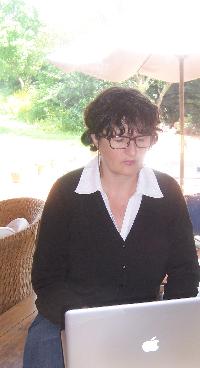| Număr de pagini: [1 2] > |
Poll: How often do you use glossaries while translating? Inițiatorul discuției: ProZ.com Staff
|
|---|
| |
Julian Holmes 
Japonia
Local time: 11:37
Membru (2011)
din japoneză în engleză
| All the time | Feb 15, 2013 |
If "glossary" in this particular question is referring to word lists or lists of terms and their other language equivelents as preferred by the end client. I try to give the client what they want. 
However, if "glossary" here is referring to the Wikipedia definition:
"an alphabetical list of terms in a particular domain of knowledge with the definitions for those terms"
... See more If "glossary" in this particular question is referring to word lists or lists of terms and their other language equivelents as preferred by the end client. I try to give the client what they want. 
However, if "glossary" here is referring to the Wikipedia definition:
"an alphabetical list of terms in a particular domain of knowledge with the definitions for those terms"
Then, I would answer "not so often" since I have plenty of specialist dictionaries and reference materials to look up the meaning of new terms in areas that are constantly changing and developing such as telecommunicatons and the Internet. ▲ Collapse
| | | |
It must depend on what kind of thing you translate. I normally have a free hand, and in other cases I either carry the necessary information in my head or refer to previous texts or the Internet, which is a bit inefficient but is probably quicker than building glossaries you never actually use!
| | | |
Carla Catolino
Italia
Local time: 04:37
Membru (2008)
din italiană în engleză
+ ...
If I am working on a difficult and long translation that will take me a few days I will probably make a list of the words that I have used...so that they can be refrenced during the project and so that my project is consistent.
However, I tend to use CAT tools 90% of the time and since these have TMs, I tend to use glossaries less than I did before I used CAT tools.
| | |
|
|
|
DianeGM 
Local time: 05:37
Membru (2006)
din olandeză în engleză
+ ...
Sometimes my own, sometimes the client's, sometimes a combination of the two.
| | | |
Michael Harris 
Germania
Local time: 04:37
Membru (2006)
din germană în engleză
if at hand / specialist stuff provided by the customer, otherwise the TM is generally enough
| | | |
on the text (simple or difficult?) and the client (new or old?)...
| | | |
| If you build a glossary | Feb 15, 2013 |
then you can use it in your CAT tool to check consistency of term use in your translations.
This can be particularly useful both for large translations (did you use the same target term on page 23 as well as on page 2?) and for series of translations over time for the same client.
| | |
|
|
|
| More often... | Feb 15, 2013 |
I create or revise 'em, usually on client's request.
| | | |
| Whenever I can | Feb 15, 2013 |
I have lists of all sorts of things, and add to them frequently, and I subscribe to an online list of medical abbreviations.
I keep 'historic' names of public bodies and places of education, with dates if possible. They merge or are reconstructed at intervals, and it can be difficult to find them later on, when a college turns up in someone's CV, and it is now a department of the University of Southern Denmark or whichever.
Various ministries under different governments, which... See more I have lists of all sorts of things, and add to them frequently, and I subscribe to an online list of medical abbreviations.
I keep 'historic' names of public bodies and places of education, with dates if possible. They merge or are reconstructed at intervals, and it can be difficult to find them later on, when a college turns up in someone's CV, and it is now a department of the University of Southern Denmark or whichever.
Various ministries under different governments, which come up with law.
Many have official English names, which you can't just guess or invent.
I have other lists from large projects or regular clients.
Anything I have difficulty remembering or spelling, and correct versions of many of my typos are fed into Multiterm... so it is a ragbag, but hey, it works!
Definitely worth the effort of making and finding them. ▲ Collapse
| | | |
Evans (X)
Local time: 03:37
din spaniolă în engleză
+ ...
| Regularly, and I add to them constantly too. | Feb 15, 2013 |
I have my own glossaries of specialist terms used in fields such as art, architecture and archaeology that I have built up over thirty years. I find them invaluable. They contain terms that took time and effort to track down, and notes and references for sources that are useful in specific areas. I wouldn't be without them.
[Edited at 2013-02-15 11:13 GMT]
| | | |
neilmac
Spania
Local time: 04:37
din spaniolă în engleză
+ ...
Almost never, although I don't recommend my modus operandi to anyone. I also keep forgetting to add items to my own glossaries, usually because I'm too busy with other things.
I don't really like having to use other people's either, unless the client insists. Terms can vary from one country/area/company to another, so I usually check with the client if I'm any doubt about which version to use.
| | |
|
|
|
| What about termbases? | Feb 15, 2013 |
A Multiterm termbase is really a glossary. I use them whenever I use Trados, and that is almost all the time.
| | | |
Sitiens (X)
Suedia
Local time: 04:37
din engleză în suedeză
+ ...
Because really, it depends. It depends on the type of text, whether the client provided one, whether I have one, whether I can translate the text in my sleep or not...
| | | |
For the following...
Gilla Evans wrote:
I have my own glossaries of specialist terms used in fields such as art, architecture and archaeology that I have built up over thirty years. I find them invaluable. They contain terms that took time and effort to track down, and notes and references for sources that are useful in specific areas. I wouldn't be without them.
[Edited at 2013-02-15 11:13 GMT]
Exactly!
And as José says:
"What about termbases?
A Multiterm termbase is really a glossary. I use them whenever I use Trados, and that is almost all the time."
and I use them all the time too. Currently learning how to work better with these things, can't be having them unavailable when needed!
| | | |
| Număr de pagini: [1 2] > |
















